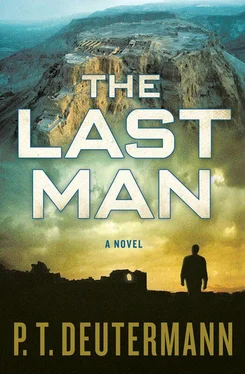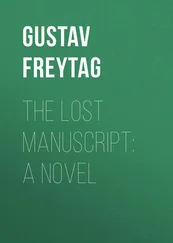The briefings had allowed David to focus on something besides academic politics as the two research assistants reviewed the Yigael Yadin expedition report and more recent excavations and analysis, then walked him through extensive maps and diagrams of the fortress. David had been secretly edified to find out that they had nothing new to tell him: His own research had been thorough and current, and Adrian had told him more than he wanted to know about the place. Even so, he had been careful to remain in the listening mode, not wanting to reveal just how much he knew about Masada. Professor Ellerstein had eased out of the briefing session after about twenty minutes, returning two hours later at five thirty when the assistants were finishing up. By then David was satisfied that any concerns the academics might have had about his project had long since evaporated. That had been his primary objective for the day’s meetings. The only wild card in his plan now was Judith Ressner. He mentally kicked himself again for not having expected an escort.
When his hired car finally made it through the dense midtown traffic to the hotel, David woke Ellerstein, who looked around in momentary confusion.
“We’re in Tel Aviv?” the old man protested. “I left my car at the Rockefeller.”
David had forgotten that. He invited Ellerstein in for a drink. “What’s the hurry?” he asked. “In rush hour traffic you won’t get anywhere fast. Ari can take you back, and it’s been a long day. A Scotch will make it go away.”
“Okay.” Ellerstein laughed. “You have convinced me. Difficult, wasn’t it?”
The lobby bar was much less crowded, and they took the same table they had shared Saturday night. After the waiter brought their drinks, David decided to probe a little about Judith Ressner.
“The briefings this afternoon were very useful,” he began. “I think that the university is perhaps a little less apprehensive about my project now.”
“Yes, I think so. You were clever to defuse their concerns about time and not to object to having an escort. Their whole tone was much different from just a week ago. Then they were trying to decide what to do with you and if they would even permit it.”
“Yes. They seemed quite friendly when we left. Except for Miss Ressner, or is it Mrs.? I’m not sure I have her figured out.”
Ellerstein chuckled. “Figuring Yehudit Ressner out, as you say, is not something that will be accomplished in a single afternoon, Mr. Hall. There is some background there you should probably know.”
“I’m all ears.”
“Well, she is a widow. Her husband was a physicist, working for the government. He died in some kind of accident — the circumstances are unclear — while working on a classified government project, about five years ago.”
Ellerstein paused to see if David would make the connection between physicist and classified government project.
“Dimona?” David asked.
“Just so. Judith had recently completed her doctorate in archaeology when this happened, and it was naturally a very difficult time for her. She got an appointment to the HU faculty a few months later. The government may have had something to do with that, perhaps a form of compensation, yes? Well, never mind: She is very bright and entirely qualified.”
David nodded, recalling the dark circles under her eyes and her habit of avoiding eye contact. “An accident? That word has a very defined meaning in the world of nuclear engineering.”
Ellerstein shrugged. “A physicist. Who can say?”
A radiation accident, David thought immediately, but decided to let it pass. Dimona was a tightly closed book within the international nuclear community. “She’s still grieving.”
“That is correct, Mr. Hall. You saw her: She is very attractive, but suffering, I think, from severe depression. Frankly, we are all worried about her. She was a very businesslike young lady before this thing happened, but since then, it is like the human being is no longer there, just the academic. She has actually produced some fine work, especially on the Metsadá materials and the possible links with the Qumran scrolls.”
“You seem to know her pretty well, Professor.”
“Yes, well, I met her husband, and through him, Yehudit. That was some time ago. I had actually worked for the same government laboratory where Dov, her husband, ended up working. When he died, she became in a small sense a protégé of mine, but now she lives alone in every sense of the word. She is younger than she looks, and some of the younger men have tried to engage her socially, but, well—”
“I see,” David said, remembering the Shot-downs. “So she’s probably just delighted to be assigned this little babysitting mission.”
“Babysitting!” Ellerstein smiled as if he knew a secret. “I like that, Mr. Hall. You are maintaining a realistic view of your situation here. Actually, and you must never mention this, the chairman probably had an ulterior motive. As I said, they are worried about her. Your little expedition will give her something entirely new to deal with, if only for a few days. Time to reflect, perhaps.”
“Wonderful.”
Ellerstein laughed again. “It is a small price for you to pay, but if you can get her to talk to you, she has some interesting insights on what happened up there on that bloody mountain.”
The waiter came by and took their orders for a refill. “A melancholy focus for a melancholy lady,” David mused.
“What, Metsadá? What those people did is considered a glorious act of defiance in this country. If, of course, it happened; there was never any physical evidence of a mass suicide found.”
“Nine hundred sixty men, women, and children taking their own lives is not my idea of glory, Professor. Dramatic, yes, but horrendous is more like it. Josephus says that the Romans were so shocked by what they found that they were speechless.”
Ellerstein stirred his drink with his right index finger for a moment before replying.
“Your Adrian’s theory is — interesting, Mr. Hall, but you must keep in mind that Josephus was not there. Plus, Metsadá wasn’t the only case of this.”
“Yes, there was Gamla, wasn’t there.”
“Very good, Mr. Hall. Also Machaerus. With much larger numbers, we think. Basically, you must keep in mind what was in store for them if they were captured alive. All of the uninjured men would have been put in chains and sent to Caesarea, either to be worked to death in the galley fleet or to be torn to pieces by wild beasts at the hippodrome. Their wives and daughters would have been raped before their eyes, and the attractive ones taken away as slaves. The plain ones would have been flung off the ramparts, along with the young children and the wounded, all in full view of the surviving men. Remember, these people had defied the Roman Empire for almost three years.”
“Even so, how, how in the world, could a father steel himself to kill his whole family?” David asked. “I mean, supposedly, that’s what they did — each man slaughtered his own wife and children and then himself. Then ten men, who had been selected by lots, were assigned to kill any of the men who didn’t kill themselves after what they’d done. It is almost unbelievable, and yet Josephus says that’s exactly what happened.”
“To an American it may be unbelievable,” Ellerstein said with a rueful smile. “Americans, if you’ll forgive my antecedents, have led a sheltered and very brief existence as a nation. Especially compared to the sweep of events in this part of the world since the beginning of human history, which, in itself, probably began here in the Middle East. Surely you acknowledge that.”
“That’s what Adrian maintained, too,” David sighed. “I guess that’s why I really need to see this place. That’s what I meant by that ‘communing with the spirits’ remark. I must say, if this Ressner woman is suffering from clinical depression, Metsadá might not be such a good venue for reflection on her life.”
Читать дальше












